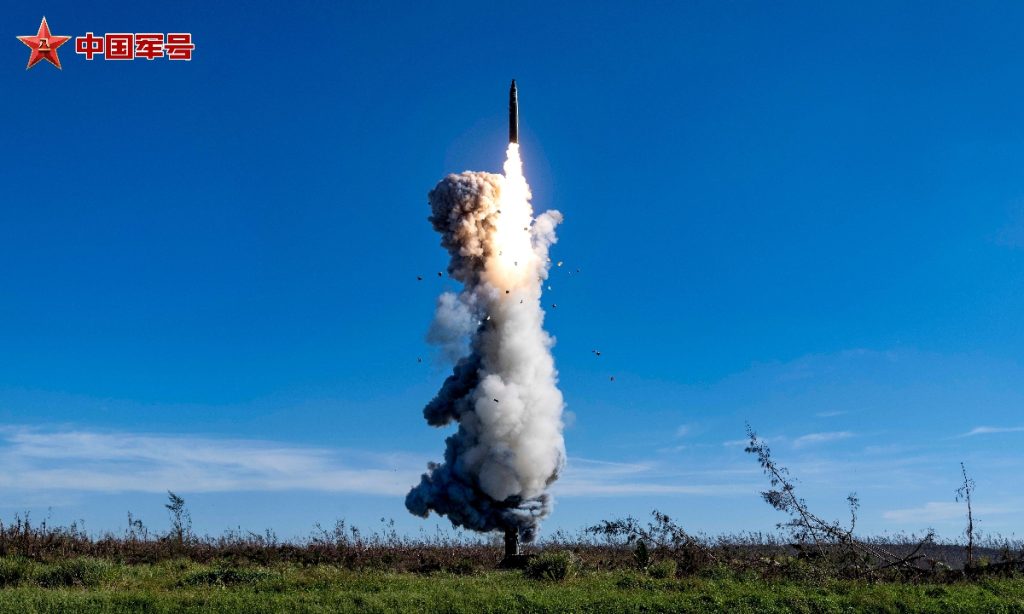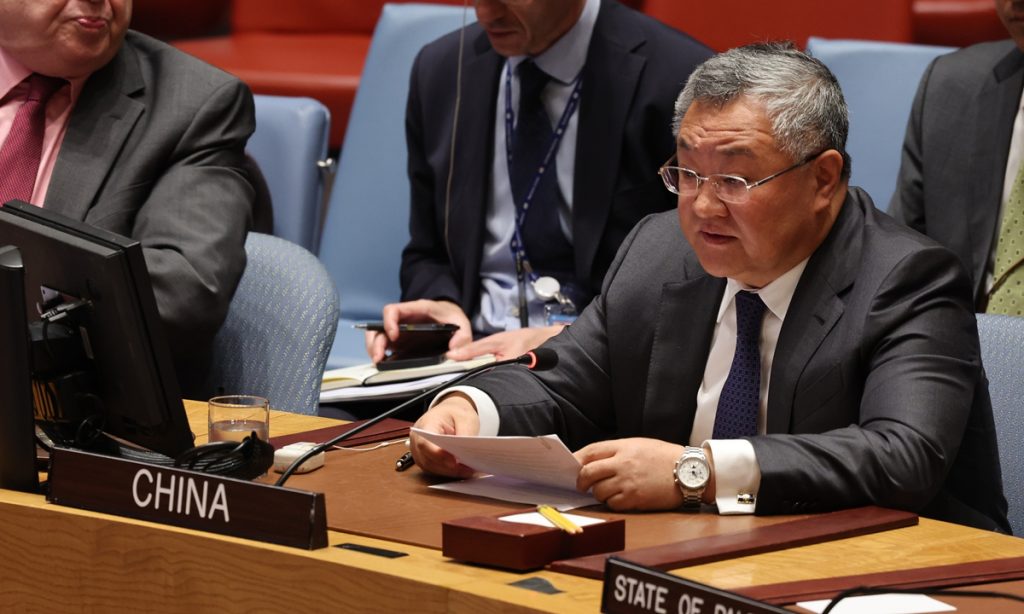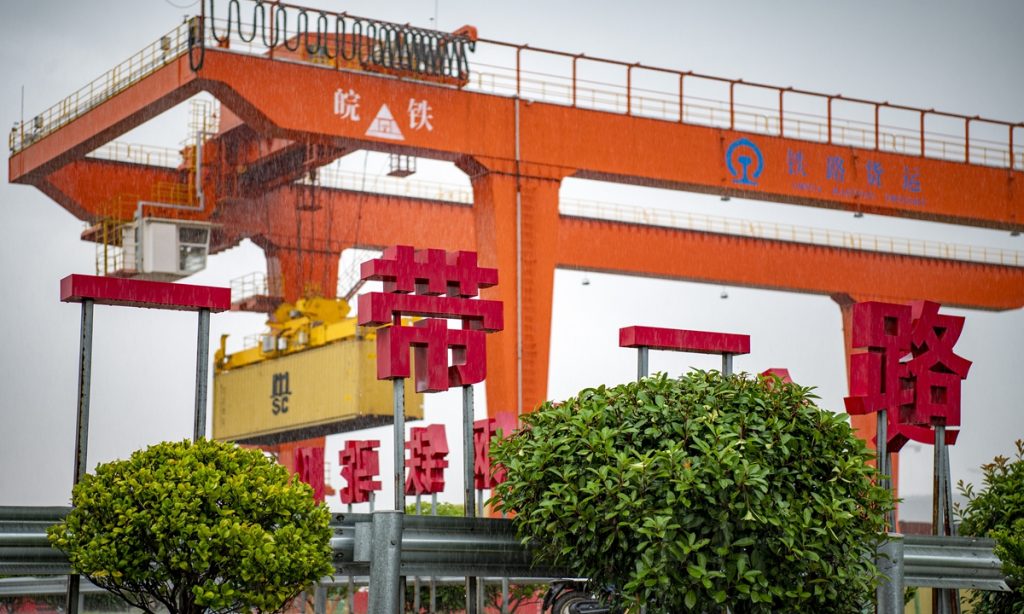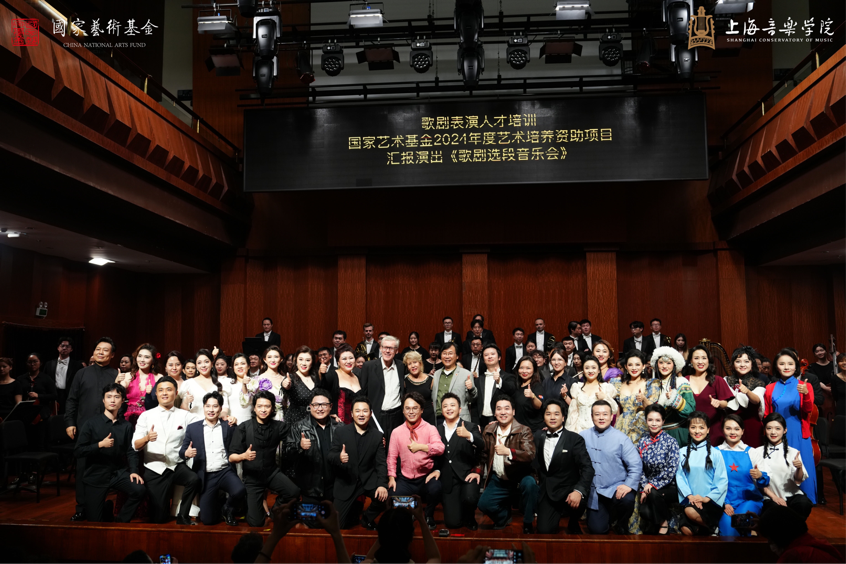People's Daily publishes commentary on path New China has traversed in 75 years

Having walked through yesterday, New China has undergone monumental changes and a transformation. Today, it continues to evolve with vigor and vitality, and while the journey ahead remains challenging, the future is promising.
Achieving the great rejuvenation of the Chinese nation has been the collective aspiration of the Chinese people since modern times. Not long after the founding of New China in 1949, our Party set forth the goal of building a modern socialist country.
The path we choose determines our destiny, and the path changes destiny.
In the past 75 years, New China evolved from a nation of poverty and weakness to one that has completed the building of a moderately prosperous society in all respects, embarking on a new journey of fully building a modern socialist country. The Chinese nation has made a significant leap, progressing from standing up and growing prosperous to becoming strong. "The fundamental reason is that we have found a correct path that suits China's national conditions, conforms to the trends of the times and enjoys the support of the people. The path is socialism with Chinese characteristics."
Xi Jinping, General Secretary of the Communist Party of China (CPC) Central Committee, highlighted: "Promoting the building of a strong country and the great cause of national rejuvenation through a Chinese path to modernization is not only a bright road for the Chinese people to pursue a better and happier life, but also a just one to promote world peace and development." This significant conclusion contains profound historical, theoretical, and practical logic.
By 2035, we will basically realize socialist modernization, and we will build China into a great modern socialist country from 2035 through the middle of the 21st century. The 20th National Congress of the CPC held in 2022 made a macro-outlook on the "two-step" strategic plan and introduced key theoretical innovations - summarizing and deeply elaborating on the theory of Chinese modernization.
In planning and deploying reforms aligned with the Party's central mission, the resolution adopted at the third plenary session of the 20th CPC Central Committee pointed out: "As Chinese modernization has been advanced continuously through reform and opening-up, it will surely embrace broader horizons through further reform and opening-up."
Our rich history and profound civilization serve as the foundation of our confidence and strength. Having walked through a glorious journey and moving toward a bright future, we will unite to gather strength, and through hard work, we will achieve great accomplishments. Together, we will write a magnificent chapter of Chinese modernization, filled with confidence and determination.
The expedition driven by dreams has never feared the mountains and rivers, nor has it been daunted by difficulties and dangers.
In the Wumeng Mountains, the North Panjiang River flows swiftly through deep gorges. To traverse these mountains, three bridges have been constructed over the years.
In 1970, a suspension bridge was constructed; in 1990, a steel plate bridge was built on top of the suspension bridge; and in December 2016, the world's highest bridge - the Beipan Bridge - was completed and opened to traffic, turning the chasm into a vital thoroughfare.
Since the beginning of the new era, China has successively tackled world-class challenges in areas such as super-large bridges, long tunnels, rapid island construction, and roads in special geological conditions, achieving a series of "world-leading" milestones in expressway development. The terms "Chinese roads," "Chinese bridges," and "Chinese tunnels" have become shining symbols of the country.
The evolution of roads reflects "epic progress" over the past 75 years, symbolizing the steadfast journey of an ancient nation toward rejuvenation. It is precisely by courageous advancing along the path of Chinese modernization that we have achieved rare "two great miracles" and unveiled a bright prospect for national rejuvenation.
A road is not merely a physical passage but also a reflection of the times.
Today in China, the Hong Kong-Zhuhai-Macao Bridge establishes a world-class standard, the G60 Science and Technology Innovation Corridor in the Yangtze River Delta fosters innovative elements, Anhui Province's "Quantum Avenue" has evolved from being a follower to a leader, the Hotan-Ruoqiang Railway in Xinjiang creates a "happy road" across the desert, and the ancient Silk Road radiates with new brilliance in this era…
The road of upward climbing and forward advancement interlinks the diverse developments of the new era, weaving a beautiful tapestry of life. Navigating uphill struggles and overcoming obstacles, we carve out new paths. When faced with mountains, we build roads, and when encountering water, we build bridges, thus establishing thoroughfares. Each day in the new era brings us nearer to new horizons.
Since the 18th National Congress of the CPC held in 2012, based on the long-term exploration and practice since the founding of New China, particularly following the reform and opening-up, our Party has successfully advanced and broadened Chinese modernization, instilling a sense of confidence among hundreds of millions of people that "we are on the right path."
This globally noteworthy Chinese path provides a more comprehensive institutional guarantee, a more solid material foundation, and a more dynamic spiritual force for building a strong nation and the great rejuvenation of the Chinese nation.
The advantages of the "Chinese system" have turned out to be ever more apparent. The system has enhanced the Party's leadership structure, clarifying the boundaries of government power with "power lists" and "responsibility lists," and integrating the work of the Party and the state into a legal framework, and utilizing institutional strength to respond to risks and challenges. The advantages of socialism with Chinese characteristics are continuously evolving into governance effectiveness.
The quality of "Chinese development" is gaining increasing recognition. The total economic output has risen from 53.9 trillion yuan in 2012 to more than 126 trillion yuan in 2023, with the overall scale of manufacturing remaining the largest in the world for 14 consecutive years. This reflects not only a leap in "quantity" but also an improvement in "quality." China is charting a path of higher quality, increased efficiency, and more equitable, sustainable, and safer development.
The power of the "Chinese spirit" is on the rise. Whether competing in the Olympic Games to bring glory to the nation, advancing in times of crisis, honing skills at the grass-roots level, or leading the way in innovation, the dedication of hundreds of millions of people to the practice of reform and development reveals the rich heritage of remarkable traditional Chinese culture, the open and inclusive spirit of China, and the determination, resilience, and confidence of the Chinese people.
In this process, our Party adheres to the "two combinations" and has established Xi Jinping's Thought on Socialism with Chinese Characteristics for a New Era, providing fundamental guidance for Chinese modernization.
The automotive industry is universally acknowledged as one of the most important indicators of a country's manufacturing strength. At the founding of New China, we were unable to produce one single car.
By 2023, China's automobile production and sales both exceeded 30 million units, making the country the world's largest automobile producer and consumer for 15 years running, and it has also become the largest automobile exporter globally. In the first eight months of 2024, the production and sales of new-energy vehicles in China rose by 29 percent and 30.9 percent year-on-year, respectively.
Through hard work and perseverance, progressing through reform and opening-up, and striving in the tide of the new era, practice has fully demonstrated that Chinese modernization is a broad avenue for building a strong nation and achieving national rejuvenation, and the avenue will continue to expand.
To achieve the great rejuvenation of the Chinese nation, the path is of utmost importance. Chinese modernization is the only correct path for building a strong country and achieving national rejuvenation, which has been opened up by the Party leading the people.
More than 100 years ago, Dr Sun Yat-sen outlined the first blueprint for China's modernization in his "International Development of China," which mentioned the construction of 1.6 million kilometers of roads, about 160,000 kilometers of railways, and three world-class seaports…
Today, roads are crisscrossing, high-speed trains are running, and China's railway operating mileage has exceeded 160,000 kilometers, with seven of the world's top 10 ports located in China. The level of modernization in China has greatly surpassed the expectations of our predecessors.
In 2020, Xi paused before an exhibit in a museum in Guangdong Province showcasing a grand plan that Sun Yat-sen devised to modernize China a century ago. "Only we Chinese Communists can make it happen," Xi remarked before the exhibit.
Why can the CPC make it happen?
Our guiding ideology evolves with the times. We will continue to promote the "two combinations," with the adaptation of Marxism to the Chinese context and the needs of our times guiding our direction and providing fundamental adherence.
Our historical mission remains steadfast. For over a century, the Party has united and led the people in all our efforts to build our country into a strong and modern nation and achieve the great rejuvenation of the Chinese nation.
The goals of our efforts remain consistent. From the first Five-Year Plan (1953-1957) to the 14th Five-Year Plan (2021-2025), the unchanging theme has been to build China into a modern socialist nation.
Great achievements are etched in history. The Chinese people have become the master of their own destiny, and the great rejuvenation of the Chinese nation has entered an unstoppable historical process. The socialist China stands tall and proud in the East.
Leading social revolution through the Party's self-revolution, the CPC is infusing more vibrancy into its revolutionary forging, determined to achieve the great cause of the Chinese nation for generations to come, and it is thriving.
Practices have clearly demonstrated that the Party's leadership is directly related to the fundamental direction, future destiny, and ultimate success or failure of Chinese modernization. Only by unwaveringly upholding the Party's leadership can Chinese modernization have a bright future and flourish.
Time flows on, telling the story of the times, and the story of the light.
"Every household using electric lights was something we could never even dare to imagine." On December 23, 2015, there was a significant celebration in Guomang village, Banma county, Golog Tibetan Autonomous Prefecture, Northwest China's Qinghai Province. On this day, the electricity-access projects in Guomang village and two other locations were completed and approved, marking the end for the last 39,800 people in the country living without electricity as they stepped onto the "path of light."
With this, whether in the snowy plateau or in remote mountain villages, everyone has entirely bid farewell to the history of living without electricity. Our country has taken the lead among developing nations in achieving universal electricity access.
Across the globe, such a remarkable achievement can only be realized under the leadership of the CPC!
The passage of time witnesses change, and time provides the answers.
The dreams of a strong nation and national rejuvenation have been truly awakened under the leadership of the CPC, filling people with greater confidence - "Our golden world, a world of brilliance, is right ahead!"
Having traversed thousands of mountains and rivers, we still need to press forward by confronting challenges.
Chinese modernization is modernization of a huge population, which will greatly transform the modern world map. Xi pointed out: "Our modernization is both the most difficult and the greatest."
Standing at the forefront of the times, we observe the trends of history.
Committed to seeking happiness for the Chinese people and rejuvenation for the Chinese nation, committed to advancing progress for humanity and striving for harmony in the world, and with the belief that the world belongs to all, and the right path is for humanity - this is the strongest conviction our Party has in its historical mission.
To strengthen and empower the Party, ensuring that Chinese modernization overcomes challenges and progresses steadily, our Party remains clear-headed and resolute in addressing the unique challenges confronted with by large parties.
The principles remain consistent, the aspirations are unwavering, and we boldly move forward.
"The country is the people, and the people are the country." Chinese modernization is dedicated to the common prosperity of all people and the promotion of comprehensive human development, serving as a "road to happiness" that benefits the people.
In the expansive region of Northwest China's Gansu Province, a significant thoroughfare has been constructed. In November 2023, the Linxia-Dahejia Expressway, connecting 15 towns and 28 villages along the route, was completed and opened for use, becoming a route to prosperity for the local community and a pathway to an improved life.
The construction of this road was marked by a notable interaction, representing a vivid practice of the whole-process people's democracy.
In March 2019, during the country's annual two sessions, Dong Caiyun, a delegate from Gansu, voiced a grass-roots demand, stating, "We lack a highway connecting to the outside." Xi pointed out at the meeting that the officials present should actively listen to and adopt the suggestions of the delegates. That year, the construction of the Linxia-Dahejia Expressway commenced.
The people's calls are met with actions. Every detail is important, and we remain mindful of these concerns.
Today, across China, a series of roads leading to happiness, unity and revitalization vividly demonstrate the unwavering pursuit of Chinese modernization, centered on people's livelihoods.
In the depths of Daliang Mountain, robust steel ladders facilitate a prosperous life in the cliffside villages; the "backpack special line" in Chongqing better connects farmers' "money bags" with residents' "vegetable baskets," the integration of urban goods into rural areas, rural products into cities, e-commerce into villages, and express delivery to homes - these initiatives have created a vibrant new life in the countryside through the "Four Good Rural Roads" program…
"Our goal is both inspiring and simple. Ultimately, it is about delivering a better life for the people." These words from Xi capture the core essence of Chinese modernization.
The core of modernization is the modernization of people. In promoting Chinese modernization, the people are the logical starting point, the ultimate goal of the values, and the source of strength.
"Refine the employment-related public services system," "basic pension benefits for rural and non-working urban residents under the basic old-age insurance scheme will be raised gradually," "meet the essential need of salaried people for a home to live in"… The resolution adopted at the third plenary session of the 20th CPC Central Committee proposes a series of reform measures that focus on the needs of development and address the expectations of the masses.
The starting point and ultimate aim of Chinese modernization is to empower over 1.4 billion Chinese people to achieve improved living standards. Numerous small yet significant aspects of daily life are increasingly incorporated into the overarching national development framework, transforming into the sense of gain, happiness, and security among the people.
The Grand Canal embodies half of China's history. The millennium-old waterway has nurtured and benefited communities on both banks through its commercial civilization and the transmission of cultural heritage across time and space. In the decade following its successful designation as a UNESCO World Heritage site, the Grand Canal has been revitalized to reflect contemporary ethos, becoming a truly "river of wealth and happiness."
Chinese modernization seeks not only the substantial enhancement of material wealth but also the profound enrichment of spiritual wealth, nurturing confidence and strength in thought and culture. From intangible cultural heritage evolving into cultural innovation, to the ascent of China Chic gaining popularity, and the emergence of miners-writers and deliverymen-poets… Chinese modernization empowers Chinese civilization with contemporary strength, and the edifice of the Chinese national spirit stands tall, further stimulating the enthusiasm, initiative, and creativity of hundreds of millions of people.
Xi's attention and support for hardworking individuals in various sectors inspire and motivate hundreds of millions of people to make their lives shine and realize their dreams through hard work.
Chinese modernization is a common endeavor for all people. Dedicated officials commit to fostering regional coordinated development through collaboration between the eastern and western regions in China; skilled craftsmen pursue excellence, enabling Chinese manufacturing to excel on the global stage; new farmers establish themselves in rural areas, injecting new vitality into ancient lands… By upholding the principles of collaborative participation, collective construction, and mutual benefits, we can ensure that everyone progresses toward modernization together.
The cultural spirit of a society is frequently found in the details.
From the creation of a wall of honor for over 4,000 builders at the Shanghai Tower to the lighting of landmark buildings in Dongguan, Guangdong Province, in tribute to ordinary and compassionate workers; from the "Two Bombs, One Satellite" spirit and the spirit of Jiao Yulu to the spirit of poverty alleviation and the entrepreneurial drive; from the further improvement of the social governance system based on collaboration, participation, and shared benefits to the commitment to and advancement of the whole-process people's democracy… The interests of "people" are being realized, their value is acknowledged, and their status as subjects is respected. This provides the strongest confidence in advancing Chinese modernization.
On this extensive journey, the people are paramount.
"To achieve national development and revitalization, the most important thing for China, a country with a vast territory and large population, is to follow a development path suiting its local conditions."
Chinese modernization stands as a significant achievement made by the CPC, which led the people to adhere to independence and self-reliance through long-term exploration and practice.
In 1909, the Beijing-Zhangjiakou Railway was completed. In 2019, the Beijing-Zhangjiakou High-Speed Railway commenced operations.
The development of the Beijing-Zhangjiakou railway exemplified China's path of independent innovation - beginning with independent design and construction starting from zero and achieving world-leading standards. Train speeds escalated from 35 kilometers per hour to 350 kilometers per hour. Just as Xi pointed out: "Looking back at history, the new line carries even greater significance."
Self-reliance is the cornerstone of the Chinese nation's efforts to establish itself among the nations of the world. History and reality alike affirm that "advancing Chinese modernization requires staying independent and maintaining self-reliance."
The history of the scientific and technological revolution and industrial transformation also reflects the rise and fall of great powers.
Today, as we are confronted with a new wave of scientific and technological revolutions and industrial transformations at the pivotal intersection of China's development model transformation, the Chinese Communists, "standing in front of the world map," look at the future in a far-sighted way.
The key to Chinese modernization is the modernization of science and technology.
On January 1, 2024, the domestically manufactured large cruise ship "Adora Magic City" set sail on its inaugural commercial journey.
By conquering a series of crucial core technologies and driving the development of manufacturing, construction, energy, transportation, and other upstream and downstream industries, China is now equipped to construct aircraft carriers, large LNG transport vessels and large cruise ships, achieving the "three jewels" of the shipbuilding industry.
The Chang'e lunar exploration missions, the Tianhe core module, the Tianwen Mars mission, the Crust 1 deep-earth exploration, the Fendouzhe manned submersible, establishing leadership in 5G communication, thinner steel, larger screens, better chips, and advanced CNC machine tools… these are all vivid examples.
Emerging sectors like integrated circuits and artificial intelligence are experiencing rapid growth, domestically developed large passenger jet have commenced commercial flights, and high-speed rail technology has established international standards, while commercial aerospace and the low-altitude economy are accelerating.
Since the dawn of the new era, by seizing the essence of scientific and technological innovation, the drive for innovation and developmental vigor has surged, accelerating the formation of new quality productive forces and demonstrating strong driving and supporting forces for high-quality development.
China should enhance its strength to survive, compete, develop and sustain amid all sorts of predictable and unpredictable storms and high winds so as to ensure that the process of the great rejuvenation of the Chinese nation will not be delayed or interrupted. The most essential feature for constructing a new development pattern is achieving a high level of self-reliance and self-improvement.
Experience has thoroughly demonstrated that independence and self-reliance embody the essence of the Chinese national spirit and represent a crucial principle underpinning the CPC's foundation and governance. Following our own path constitues the foundation of all the CPC's theories and practices.
Reflecting on our journey, we have transitioned from a "latecomer to modernization" to a "growth hub of global modernization." Amid the wave of a new round of scientific and technological revolution and industrial transformation, the Chinese people have bravely faced the challenges, pursued progress, and kept pace with the times and led them. We have more firmly walked on the path of our choice, while firmly holding the fate of China's development and progress in our own hands.
As we look ahead, grounded in Chinese soil and heritage, inheriting Chinese civilization, and following the correct path that suits China's national conditions, the Party and the people possess an expansive platform in this era, a rich historical legacy, coupled with a robust resolve to advance.
Guided by the future of humanity and the welfare of the people, Xi pointed out: "To understand China, the key lies in understanding Chinese modernization."
"Promoting the construction of a community with a shared future for mankind" is one of the essential requirements of Chinese modernization. China uniquely enshrines the commitment to peaceful development within its Constitution.
In September 2024, the 2024 Summit of the Forum on China-Africa Cooperation convened. Through collaborative efforts toward modernization, we aim to establish a high-level China-Africa community with a shared future, China-Africa relations embarked on a new journey.
From the Mombasa-Nairobi Railway to the Maputo-Katembe Bridge in Mozambique, and then to the Kribi Deep Seaport in Cameroon and the Kafue Gorge Lower Hydropower Station in Zambia… Since the new era, with the high-quality joint construction of the Belt and Road Initiative (BRI) having been progressing steadily, numerous "development routes," "dream bridges," and "prosperity ports" have boosted the interconnectivity across the African continent.
Concentrating on crucial sectors like industrialization, agricultural modernization, and talent training in Africa, from jointly implementing the "10 cooperation plans," "Eight major initiatives," and "Nine programs," to jointly promoting the "10 partnership action plans"… The construction of the China-Africa community with a shared future has set a brilliant example for the construction of a community with a shared future for humanity. The modernization of China and Africa, aiding the modernization of the Global South, will surely write a new chapter in the development of a community with a shared future for mankind.
In October 2023, the Jakarta-Bandung high-speed railway, designed and built by China with a speed of 350 kilometers per hour, commenced operations, establishing Indonesia as the first Southeast Asian nation to possess modernized high-speed rail. By the end of September 2024, it had carried over 5.4 million passenger trips, averaging around 16,000 passenger trips per day.
The joint construction of the BRI gathers the greatest "common denominator" of human development.
Standing on the right side of history and on the side of human civilization's progress, what China pursues is not a modernization that benefits itself alone but a collective effort for the common good, fostering the creation of a community with a shared future for mankind.
Over the 75 years since the establishment of the People's Republic of China (PRC), the nation's outlook and the lives of its people have experienced transformative changes, but its peaceful and benevolent nature, broad and inclusive mind, and pursuit of fairness and justice have remained unchanged. These are deeply rooted in the more than 5,000 years of Chinese civilization and grow deep in the souls of the Chinese people.
Since the new era, lifting nearly 100 million rural poor out of absolute poverty has made a significant contribution to global poverty reduction efforts; contributing to about 30 percent of global economic growth for many years has vigorously advanced the global development cause; continuously hosting the CIIE, CIFTIS, and CICPE has constantly offered new opportunities for the world with China's new development…
Enhancing the welfare of the Chinese people while facilitating the modernization of nations worldwide, Chinese modernization embodies a trajectory of peaceful development that will inject new momentum into maintaining world peace and promoting common development.
Recently, when legislators from various countries visited the Chongming Dongtan National Nature Reserve and electric vehicle production bases in Shanghai, they were deeply impressed by China's successful exploration of a sustainable development path aimed at common prosperity.
"We should strengthen ourselves with the hard work and creativity of all our people and pursue development by boosting internal drivers and making peaceful use of external resources," Xi's critical insight profoundly uncovers the essence of Chinese modernization.
Presenting a new vision of modernization and representing the direction of human civilization's progress, Chinese modernization pioneers a new path for humanity toward modernization and establishes a new form of human civilization.
In June 2024, the conference marking the 70th anniversary of the Five Principles of Peaceful Coexistence was held in Beijing.
Seven decades ago, confronted with the tragic devastation of hot wars and the divisions of the Cold War, the newly established PRC offered the historical solution of the Five Principles of Peaceful Coexistence. Today, facing the major question of "what kind of world to build and how to build it," China in new era offers the era's answer of proposing a community with a shared future for humanity.
From historical answers to the answers of the era, the international landscape changes, but what remains unchanged is China's commitment to world peace and development and its relentless pursuit of a just and reasonable international order.
Embracing the currents of history, we traverse the righteous path to achieve far-reaching goals.
Routes to national prosperity and the happiness of the people are unfolding beneath our feet across this expansive land. Above the vast ocean, the Shenzhen-Zhongshan Link broke 10 world records, proving that Chinese modernization is achieved through actions.
In the Yangtze River Delta, thousands of kilometers of railways extend as a "green corridor," transforming transportation lines into ecological lines, interpreting Chinese modernization as a modernization of harmonious coexistence of man and nature.
The powerful voice of history consistently transcends time and space, resonating through the ages.
Xi pointed out that Chinese modernization is our answer to the major historical question of how to awaken the 'sleeping lion' and realize national rejuvenation. It is to choose our own path and do our own thing.
Significant advancements always begin at the outset. We recognize that the broad road does not guarantee a smooth journey, and "advancing Chinese modernization is a whole new endeavor; on the journey ahead, we will inevitably be confronted with problems, risks, and challenges."
On this new journey, toward this new advancement, it is essential to stay focused on our set goals, enhance historical initiative, and continuously push forward the great cause of nation-building and national rejuvenation.
To forge our own path, we must uphold historical confidence.
In 2019, amid increased risks and challenges, 'China's GDP per capita surpassed the $10,000 mark. During three years of fighting the pandemic, China's economy grew at an average annual rate of 4.5 percent, significantly above the global average. In the first half of 2024, a growth rate of 5 percent still leads globally.
"China's development and growth, driven by its own inherent logic, will not be stopped by external forces." This internal logic is rooted in the trials and glories of the Chinese nation and nourished by the formidable power of the Chinese people.
To walk our own path, we must always strive together in unity.
Wang Yongzhi, Wang Zhenyi, Li Zhensheng… The recipients of the Medal of the Republic and national honorary titles represent the countless outstanding individuals who have contributed to the cause of the Party and the people. With their firm ideals and beliefs and relentless spirit of struggle, they have achieved extraordinary accomplishments.
Unity and struggle are the most distinctive spiritual symbols of the CPC and the Chinese people, representing the necessary path for the CPC to lead the people in creating historical achievements. Hardworking farmers, industrious workers, risk-taking entrepreneurs, and soldiers defending the country… people from all walks of life are sweating and forging ahead, forming a mighty current of progress on the new journey and contributing to the new era.
On this new journey, united under the banner of the CPC as "a solid piece of steel," when hundreds of millions of people think and act as one, we can surely accomplish anything we set out to do.
To forge our own path, we must be skilled at overcoming challenges.
Facing countless difficulties and persevering through countless dangers, the Chinese people have fought tenaciously against foreign aggression, battled bloodily when the country was shattered, strived vigorously when everything needed to be rebuilt, and advanced with the times. Adversities have tested and strengthened the Chinese people.
The grand cause of national rejuvenation we aspire to create today is not about achieving success in tranquil circumstances, nor enjoying the fruits of flowers and applause. By taking the initiative in the face of opportunities, confronting difficulties head-on, and actively managing risks, we will surely win even greater victories.
The path is as firm as a whetstone, and the journey is boundless. Xi's words echo profoundly:
"Practice has amply demonstrated that as long as our path, theory, system, and culture are correct, we remain steadfast, tenacious, perseverant, and unremitting, we continuously advance toward our great objectives, and we are unshakeable in the face of difficulty, our goals will be achieved. Our goals will certainly be achieved!"







